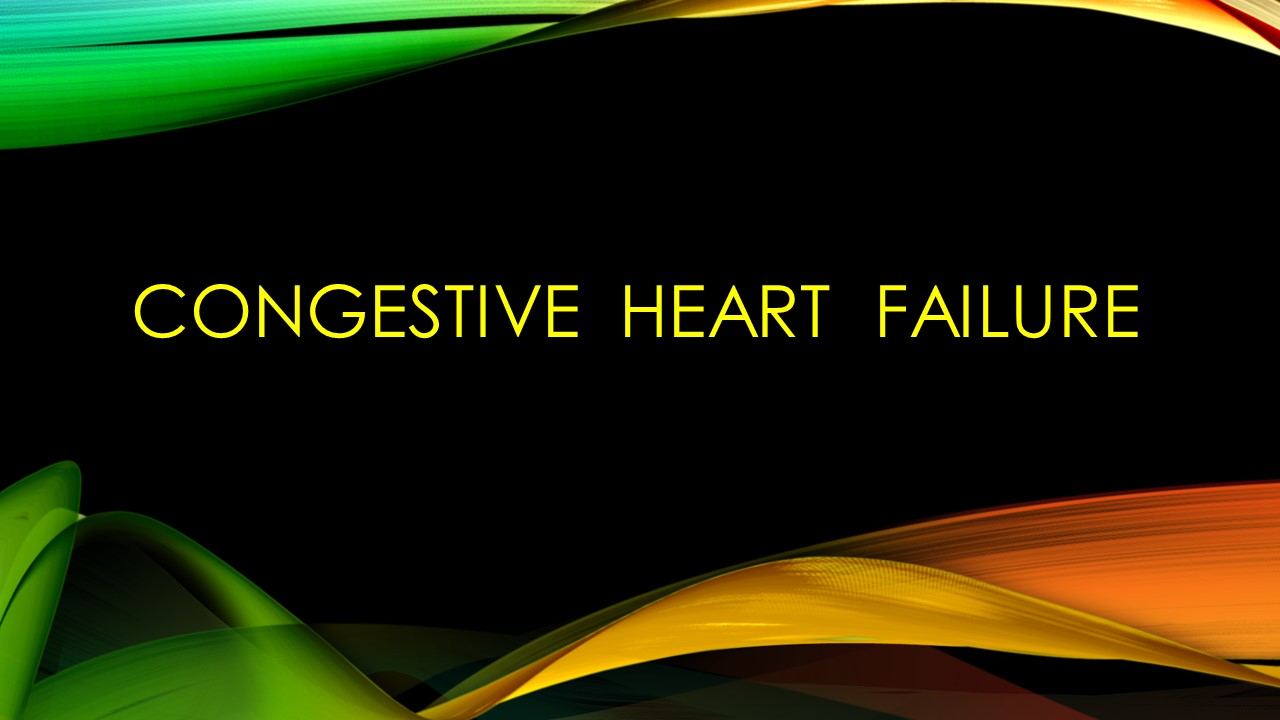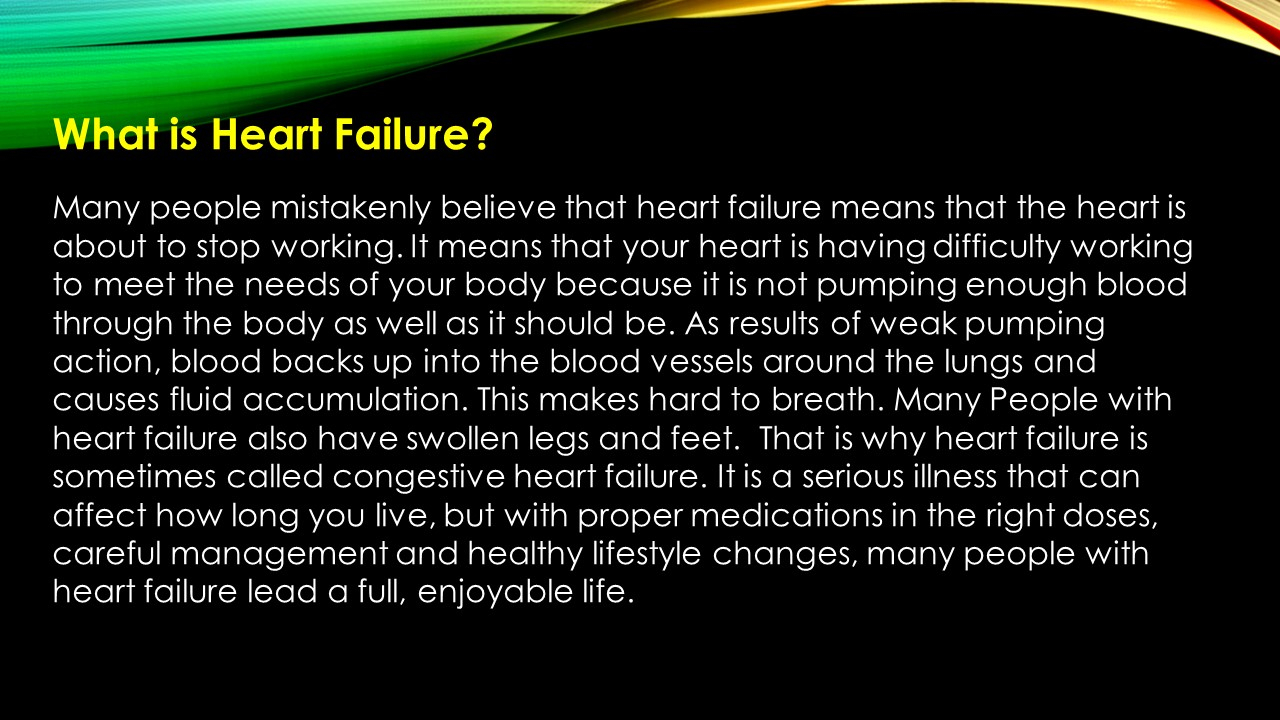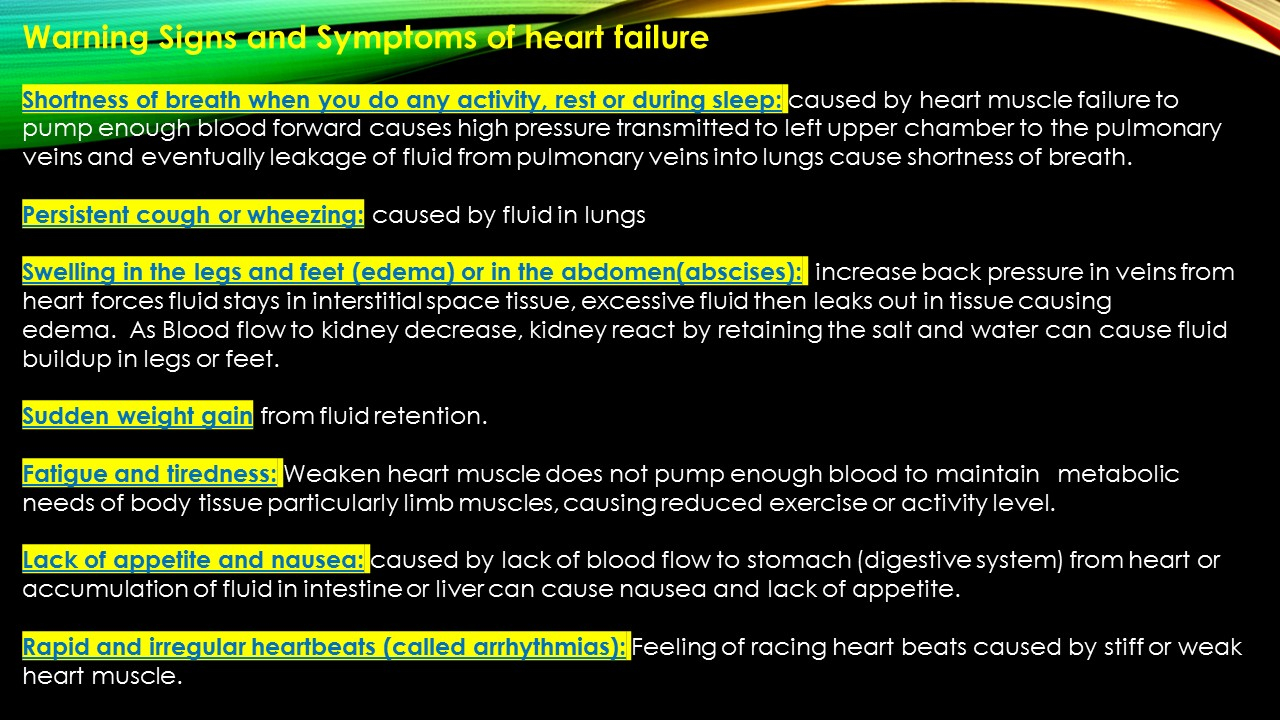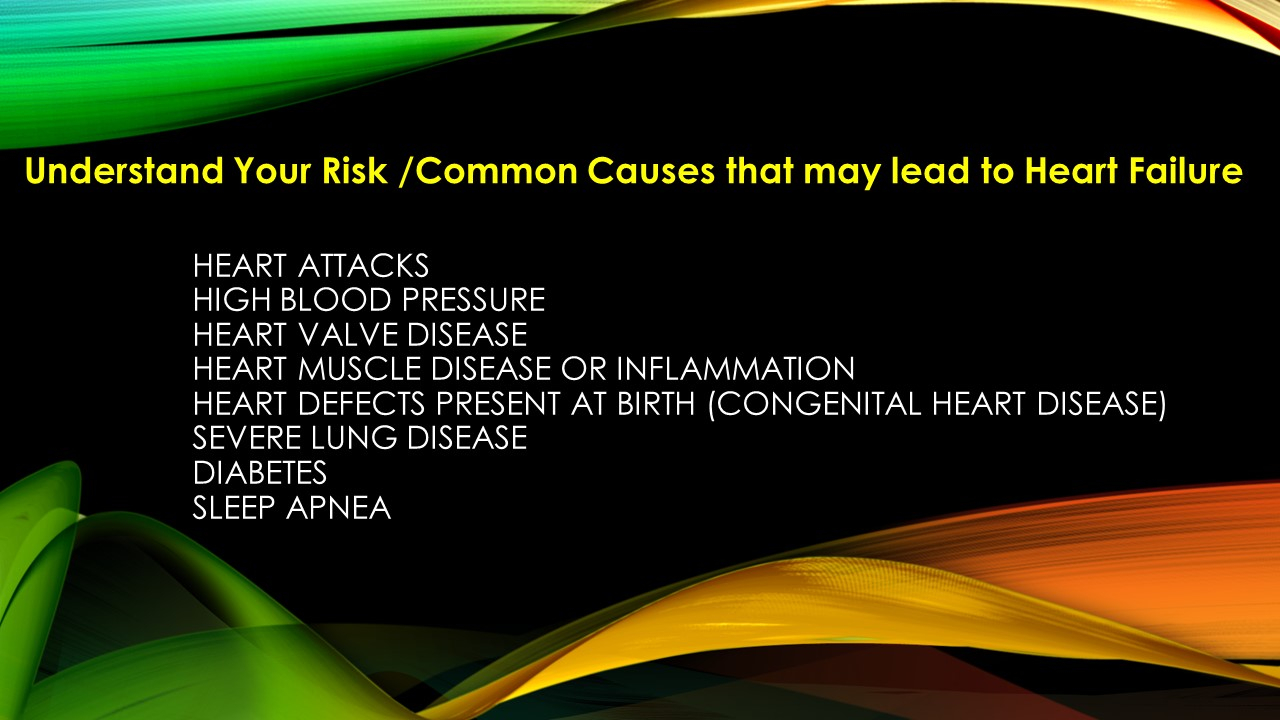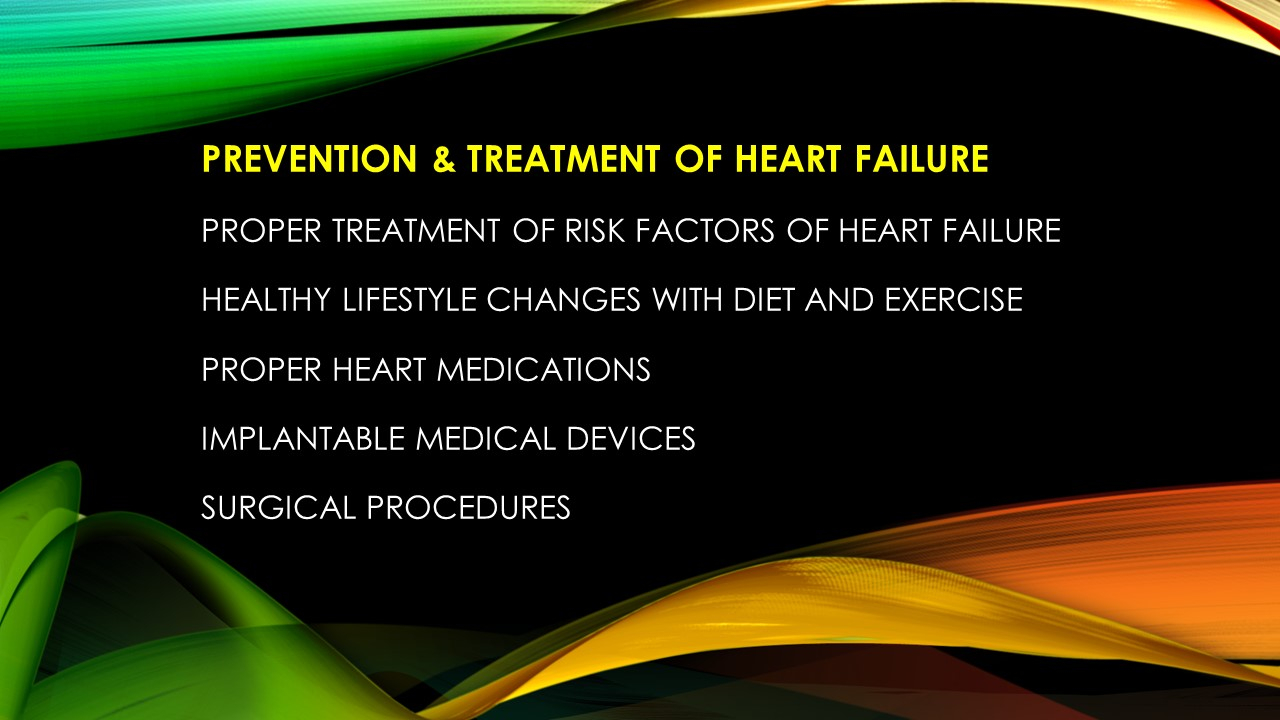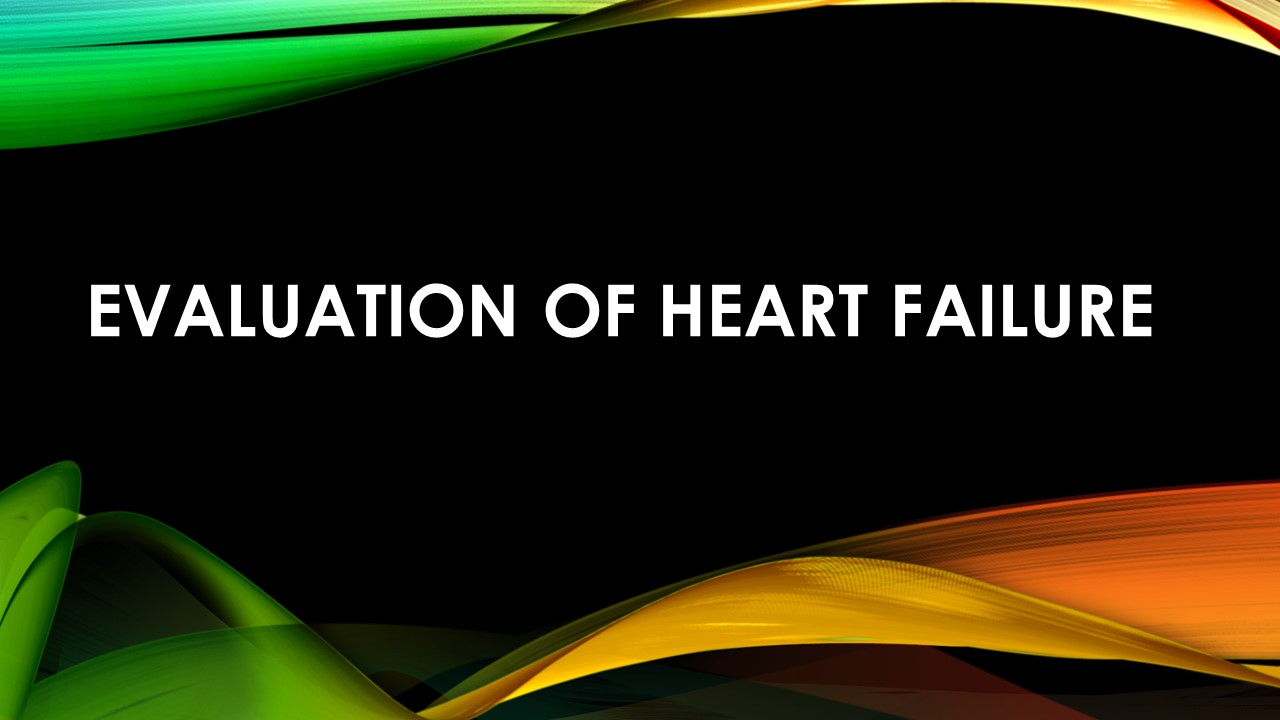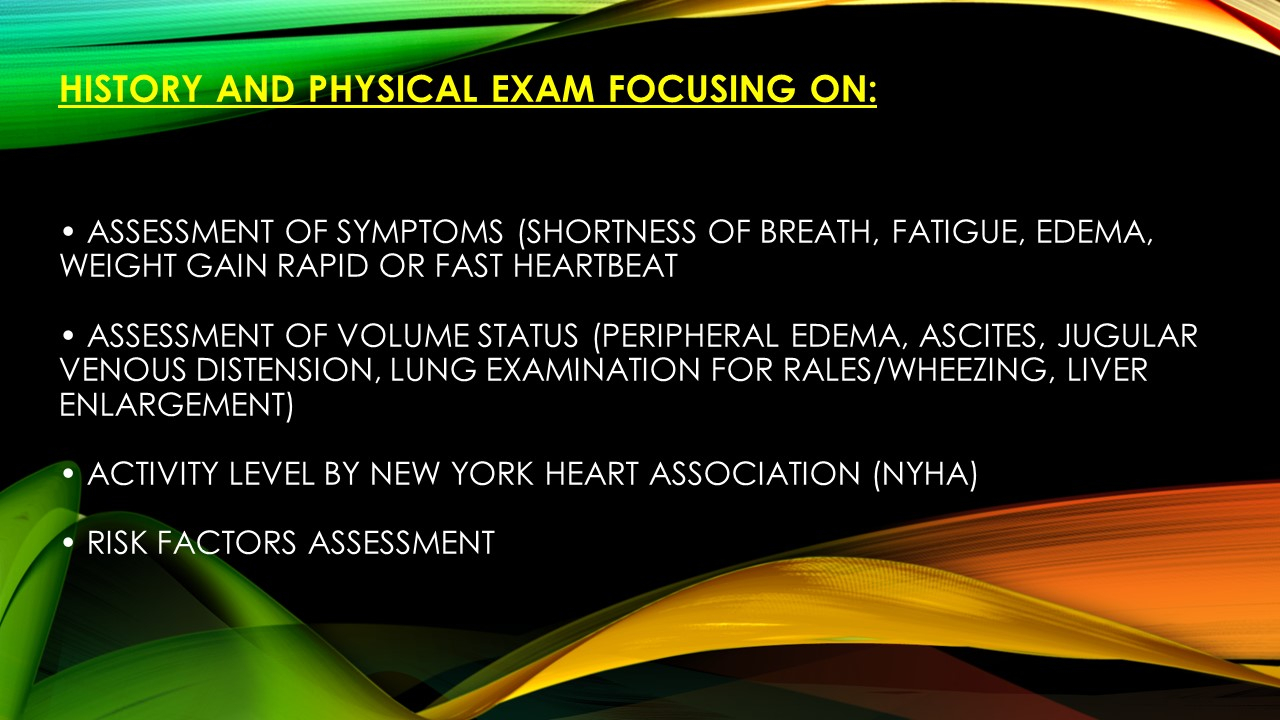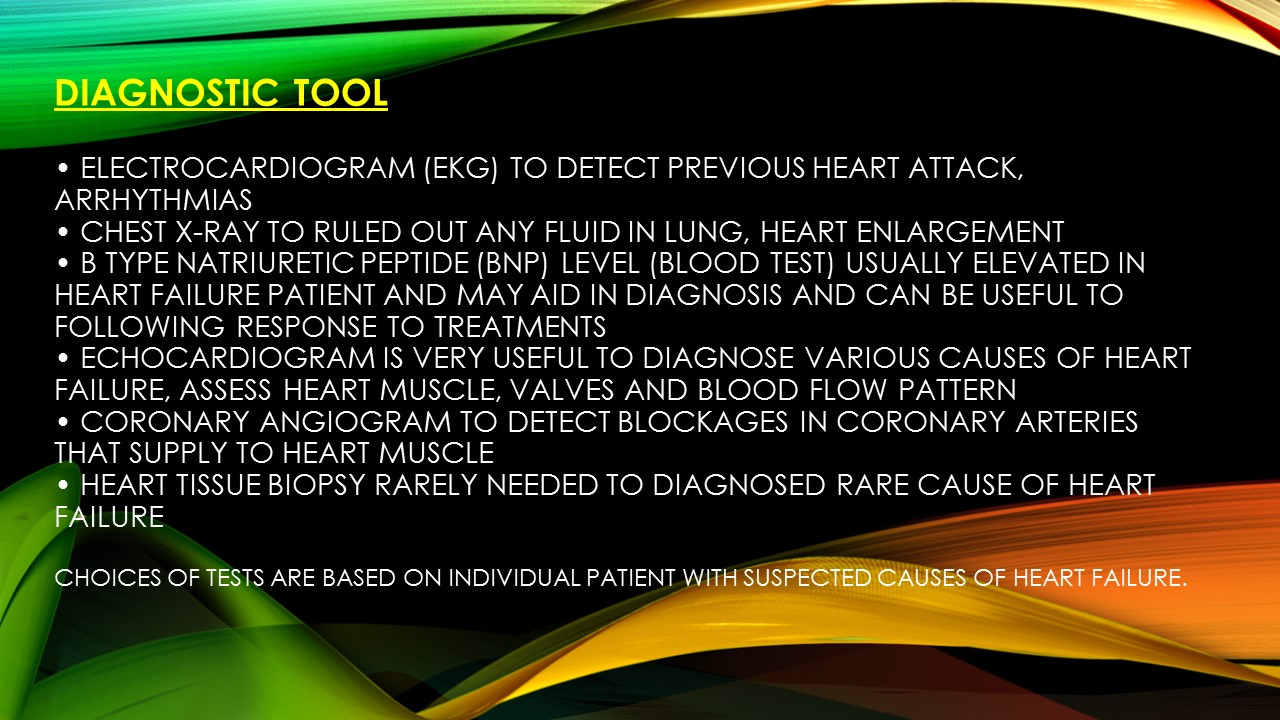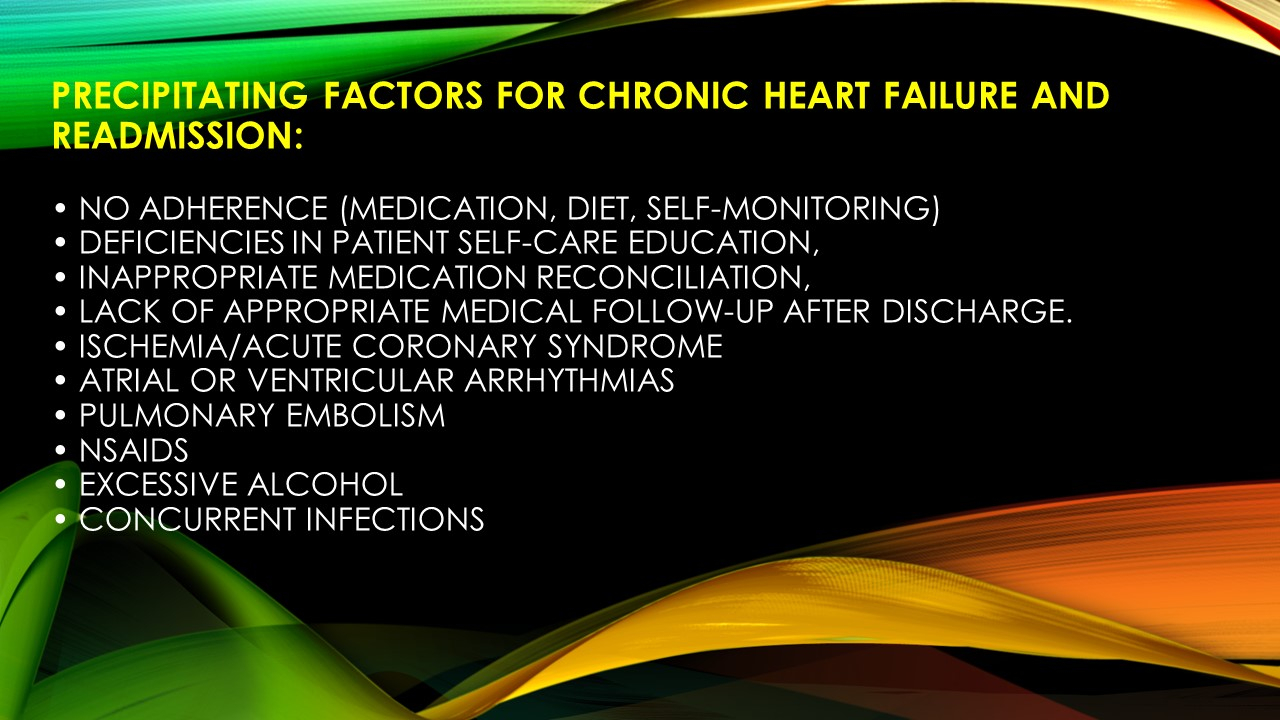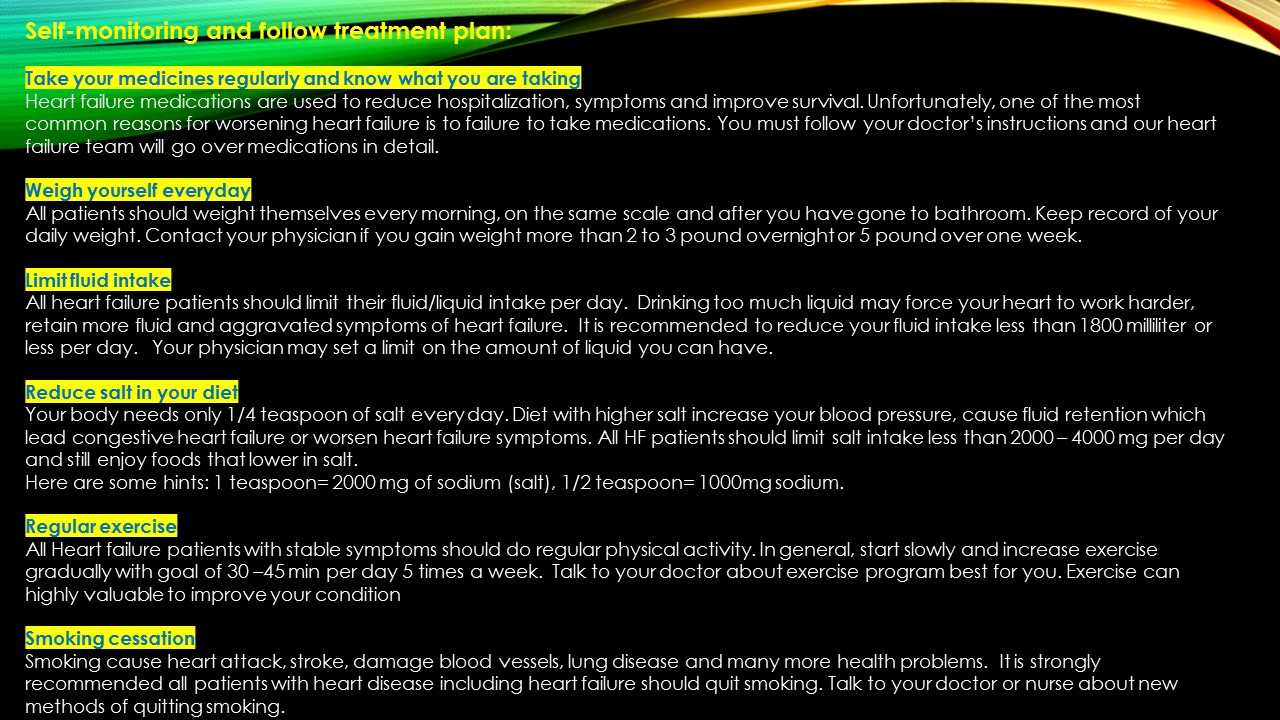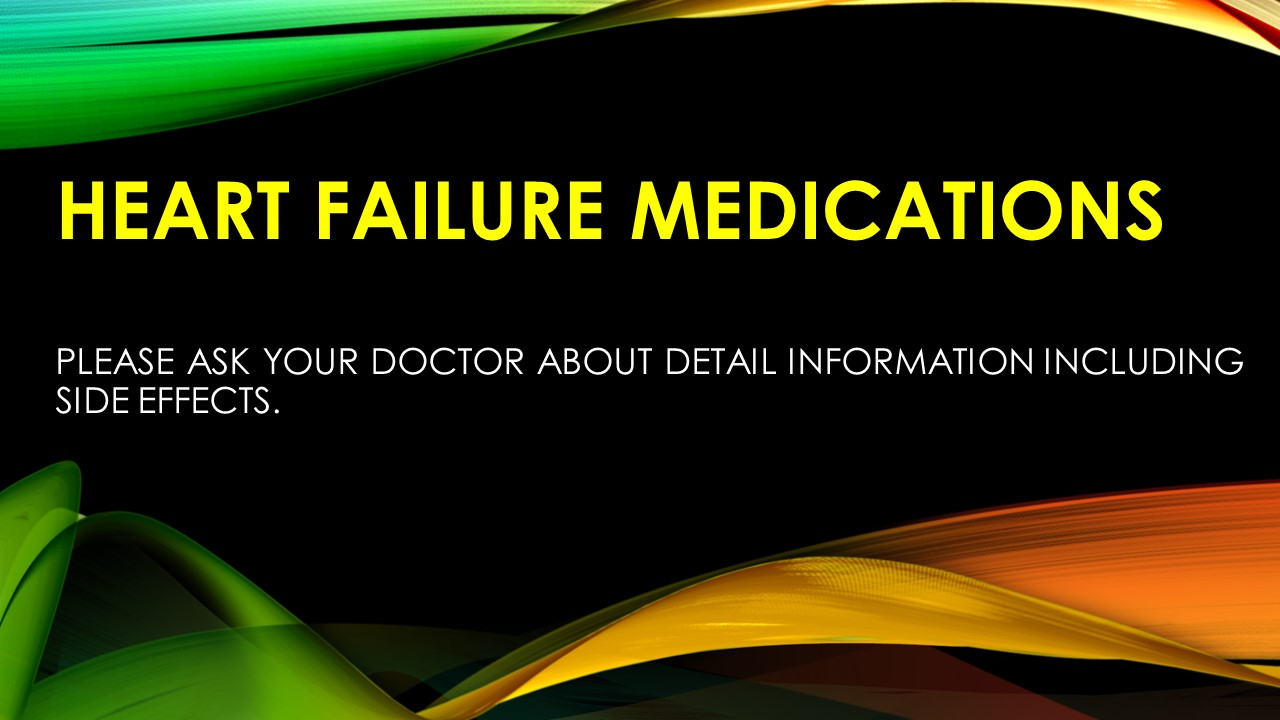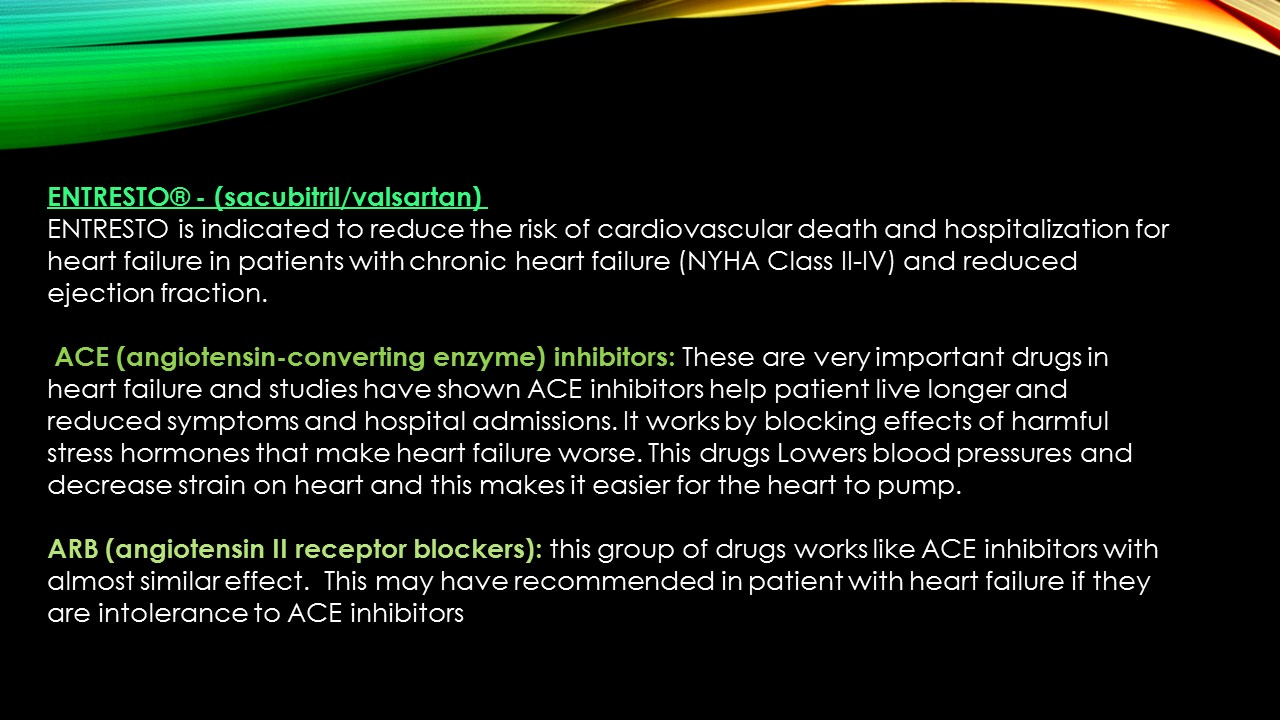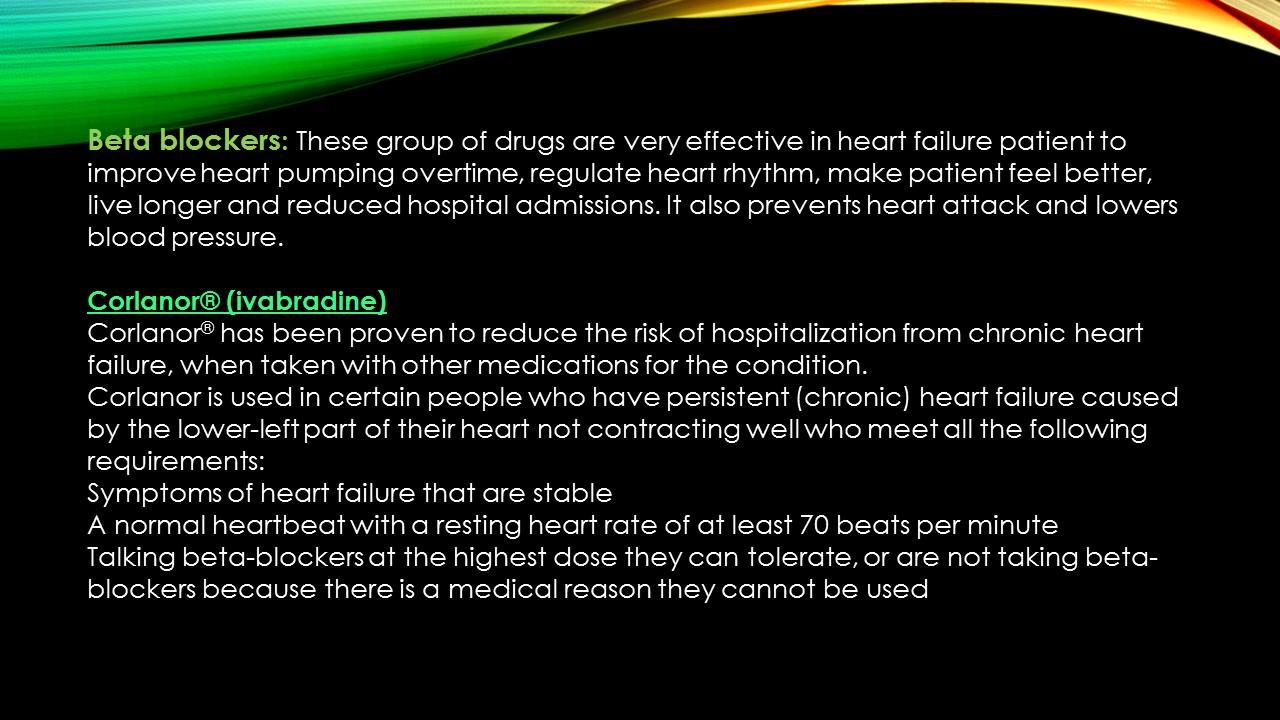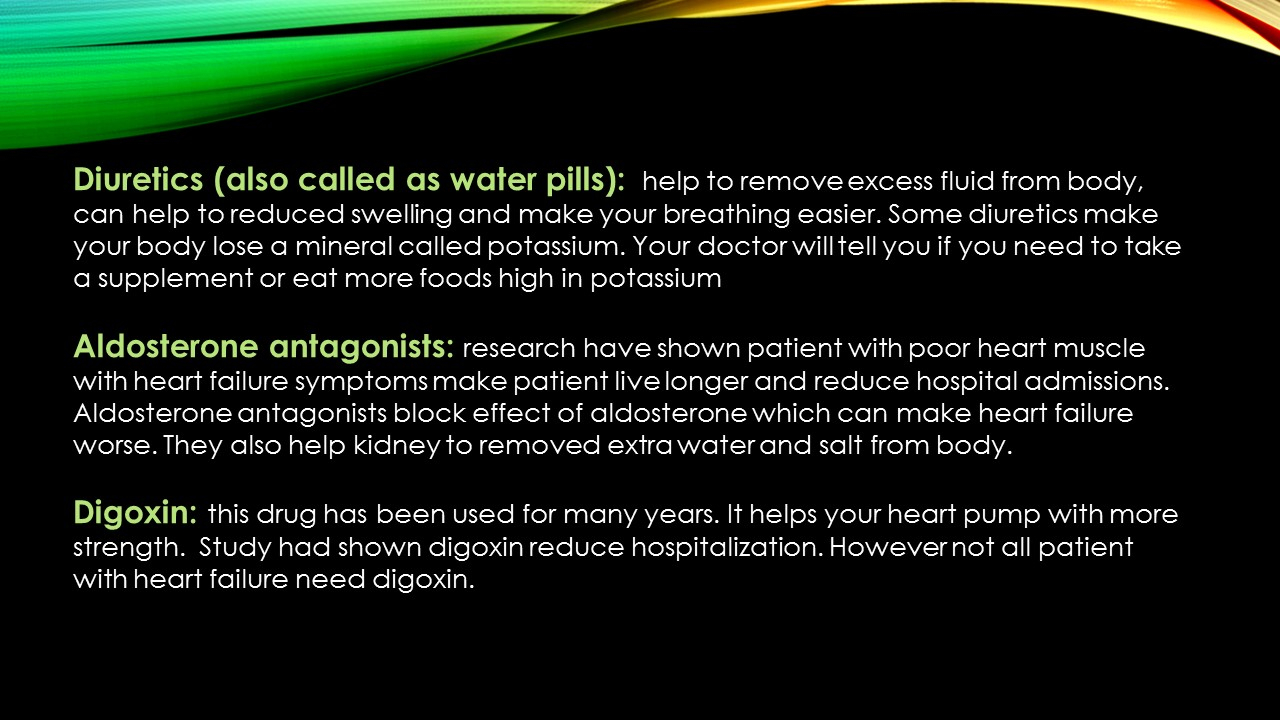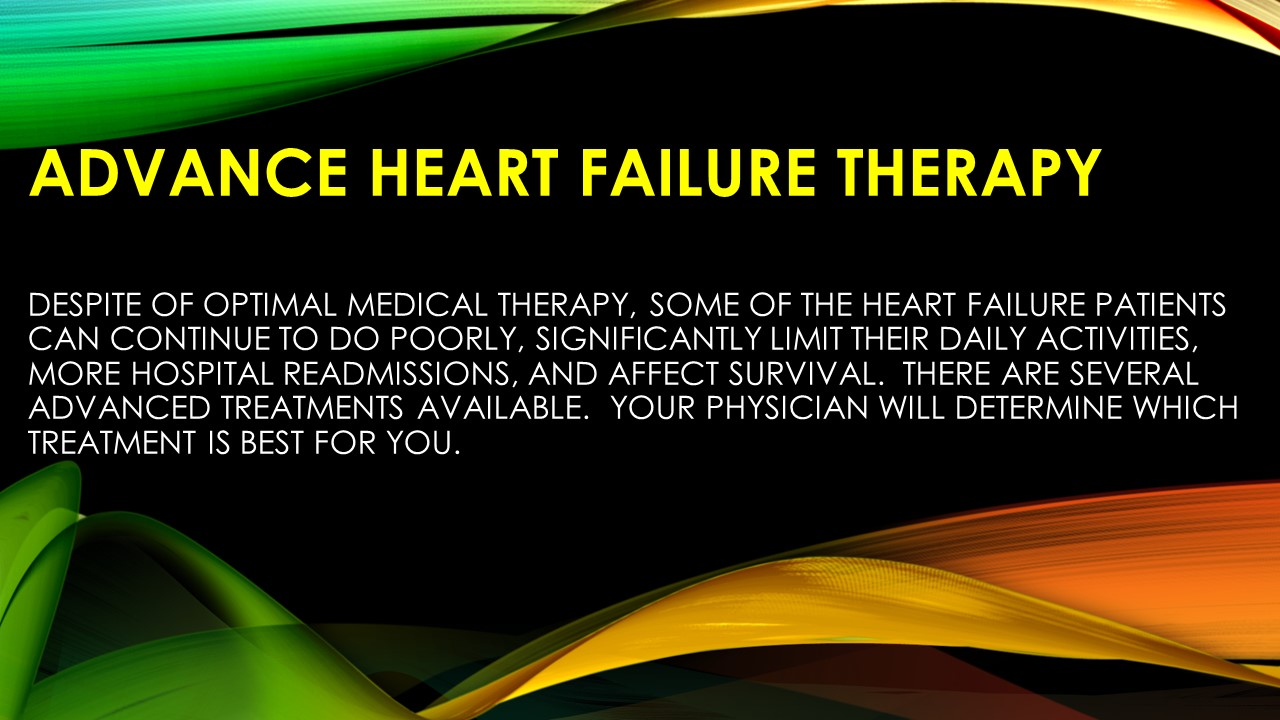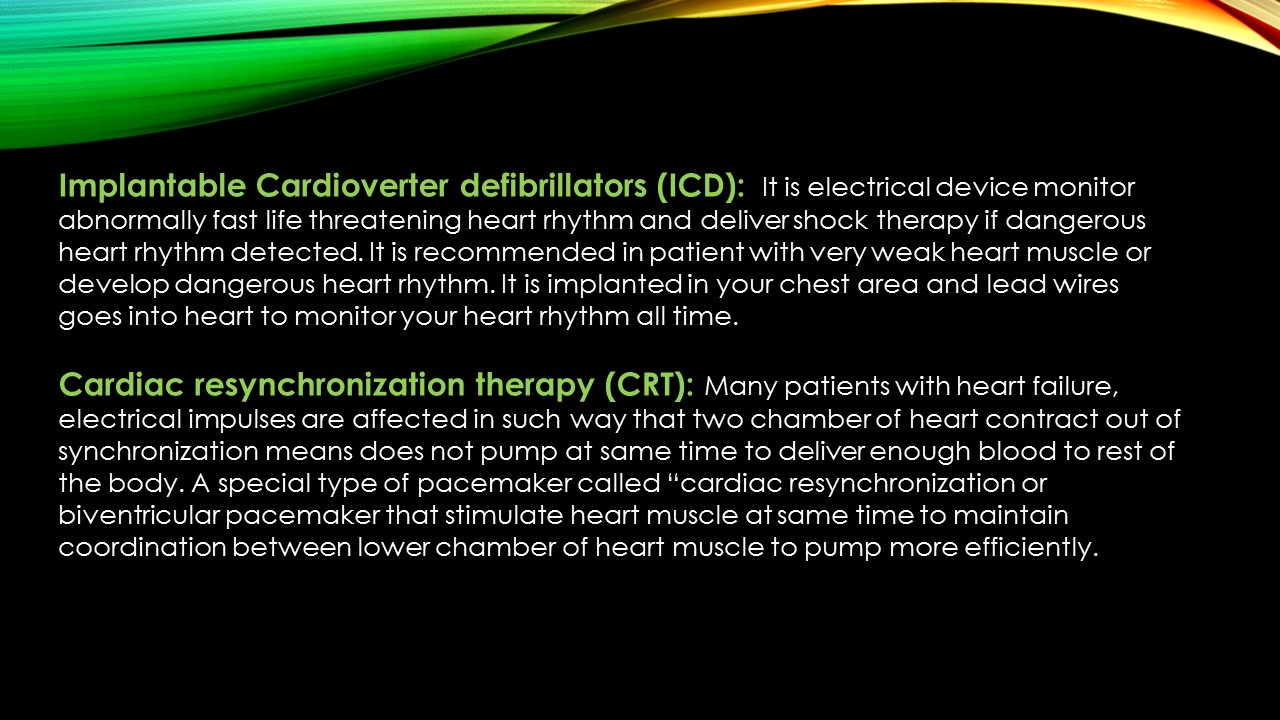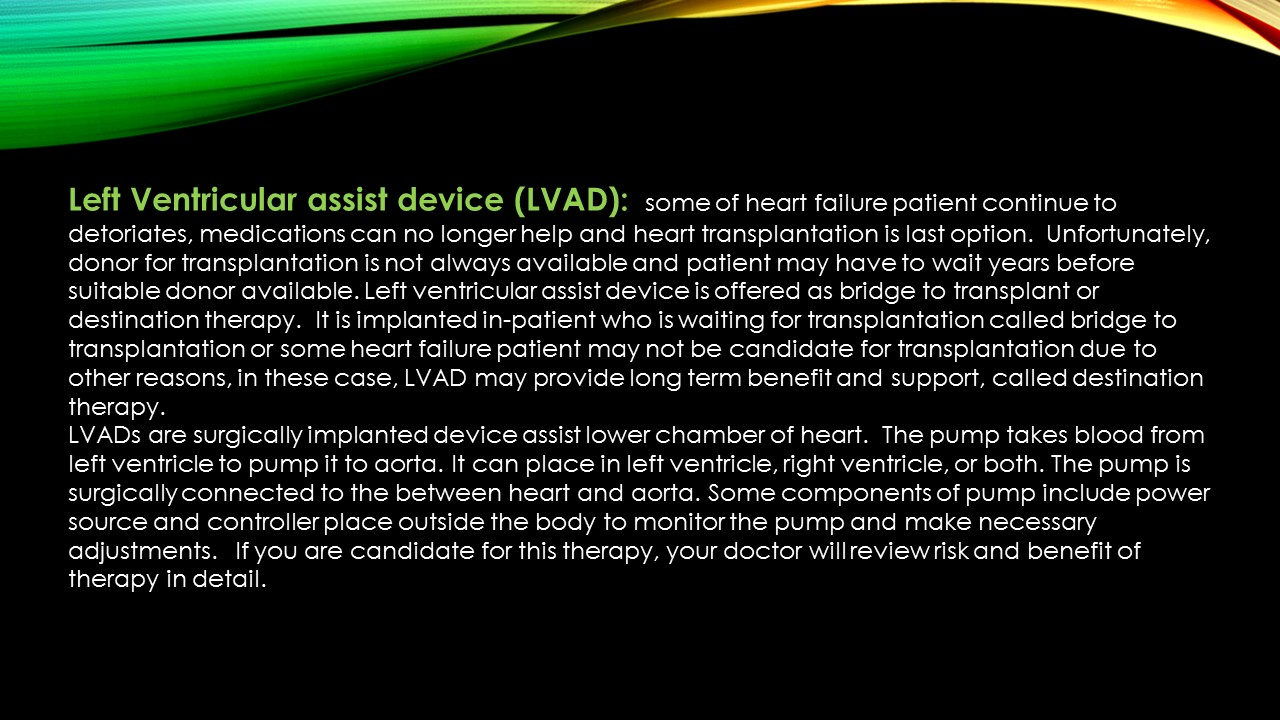Congestive Heart Failure
What is Heart Failure?
Many people mistakenly believe that heart failure means that the heart is about to stop working. It means that your heart is having difficulty working to meet the needs of your body because it is not pumping enough blood through the body as well as it should be. As results of weak pumping action, blood backs up into the blood vessels around the lungs and causes fluid accumulation. This makes hard to breath. Many People with heart failure also have swollen legs and feet. That is why heart failure is sometimes called congestive heart failure. It is a serious illness that can affect how long you live, but with proper medications in the right doses, careful management and healthy lifestyle changes, many people with heart failure lead a full, enjoyable life.
Warning Signs and Symptoms of heart failure
Shortness of breath when you do any activity, rest or during sleep: caused by heart muscle failure to pump enough blood forward causes high pressure transmitted to left upper chamber to the pulmonary veins and eventually leakage of fluid from pulmonary veins into lungs cause shortness of breath.
Persistent cough or wheezing: caused by fluid in lungs
Swelling in the legs and feet (edema) or in the abdomen(abscises): increase back pressure in veins from heart forces fluid stays in interstitial space tissue, excessive fluid then leaks out in tissue causing edema. As Blood flow to kidney decrease, kidney react by retaining the salt and water can cause fluid buildup in legs or feet.
Sudden weight gain from fluid retention.
Fatigue and tiredness: Weaken heart muscle does not pump enough blood to maintain metabolic needs of body tissue particularly limb muscles, causing reduced exercise or activity level.
Lack of appetite and nausea: caused by lack of blood flow to stomach (digestive system) from heart or accumulation of fluid in intestine or liver can cause nausea and lack of appetite.
Rapid and irregular heartbeats (called arrhythmias): Feeling of racing heart beats caused by stiff or weak heart muscle.
Understand Your Risk /Common Causes that may lead to Heart Failure
Heart Attacks
High Blood pressure
Heart Valve disease
Heart Muscle disease or inflammation
Heart defects present at birth (congenital heart disease)
Severe Lung Disease
Diabetes
Sleep Apnea
Prevention & Treatment of Heart Failure
Proper treatment of Risk factors of Heart failure
Healthy Lifestyle changes with Diet and Exercise
Proper Heart Medications
Implantable medical Devices
Surgical Procedures
Evaluation of Heart Failure
History and physical exam focusing on:
- Assessment of symptoms (shortness of breath, Fatigue, edema, weight gain rapid or fast heartbeat
- Assessment of volume status (peripheral edema, ascites, jugular venous distension, lung examination for rales/wheezing, liver enlargement),
- Activity Level by New York Heart Association (NYHA),
- Risk factors assessment
Diagnostic Tool:
- Electrocardiogram (EKG) to detect previous heart attack, arrhythmias
- Chest X-ray to ruled out any fluid in lung, heart enlargement
- B type Natriuretic peptide (BNP) level (blood test) usually elevated in heart failure patient and may aid in diagnosis and can be useful to following response to treatments
- Echocardiogram is very useful to diagnose various causes of heart failure, assess heart muscle, valves and blood flow pattern
- Coronary angiogram to detect blockages in coronary arteries that supply to heart muscle
- Heart tissue biopsy rarely needed to diagnosed rare cause of heart failure
Choices of tests are based on individual patient with suspected causes of heart failure.
Precipitating factors for chronic heart failure and readmission:
- No adherence (medication, diet, self-monitoring)
- Deficiencies in patient self-care education,
- Inappropriate medication reconciliation,
- Lack of appropriate medical follow-up after discharge.
- Ischemia/Acute Coronary Syndrome
- Atrial or ventricular arrhythmias
- Pulmonary Embolism
- NSAIDs
- Excessive alcohol
- Concurrent infections
Heart Failure Treatment
Self-monitoring and follow treatment plan:
Take your medicines regularly and know what you are taking
Heart failure medications are used to reduce hospitalization, symptoms and improve survival. Unfortunately, one of the most common reasons for worsening heart failure is to failure to take medications. You must follow your doctor’s instructions and our heart failure team will go over medications in detail.
Weigh yourself everyday
All patients should weight themselves every morning, on the same scale and after you have gone to bathroom. Keep record of your daily weight. Contact your physician if you gain weight more than 2 to 3 pound overnight or 5 pound over one week.
Limit fluid intake
All heart failure patients should limit their fluid/liquid intake per day. Drinking too much liquid may force your heart to work harder, retain more fluid and aggravated symptoms of heart failure. It is recommended to reduce your fluid intake less than 1800 milliliter or less per day. Your physician may set a limit on the amount of liquid you can have.
Reduce salt in your diet
Your body needs only 1/4 teaspoon of salt every day. Diet with higher salt increase your blood pressure, cause fluid retention which lead congestive heart failure or worsen heart failure symptoms. All HF patients should limit salt intake less than 2000 – 4000 mg per day and still enjoy foods that lower in salt.
Here are some hints: 1 teaspoon= 2000 mg of sodium (salt), 1/2 teaspoon= 1000mg sodium.
Regular exercise
All Heart failure patients with stable symptoms should do regular physical activity. In general, start slowly and increase exercise gradually with goal of 30 –45 min per day 5 times a week. Talk to your doctor about exercise program best for you. Exercise can highly valuable to improve your condition
Smoking cessation
Smoking cause heart attack, stroke, damage blood vessels, lung disease and many more health problems. It is strongly recommended all patients with heart disease including heart failure should quit smoking. Talk to your doctor or nurse about new methods of quitting smoking.
Heart Failure medications:
Each class of heart failure medications are summarized below. Please ask your doctor about detail information including side effects.
Beta blockers: These group of drugs are very effective in heart failure patient to improve heart pumping overtime, regulate heart rhythm, make patient feel better, live longer and reduced hospital admissions. It also prevents heart attack and lowers blood pressure.
Corlanor® (ivabradine)
Corlanor® has been proven to reduce the risk of hospitalization from chronic heart failure, when taken with other medications for the condition.
Corlanor is used in certain people who have persistent (chronic) heart failure caused by the lower-left part of their heart not contracting well who meet all the following requirements:
Symptoms of heart failure that are stable
A normal heartbeat with a resting heart rate of at least 70 beats per minute
Talking beta-blockers at the highest dose they can tolerate, or are not taking beta-blockers because there is a medical reason they cannot be used
ENTRESTO® – (sacubitril/valsartan)
ENTRESTO is indicated to reduce the risk of cardiovascular death and hospitalization for heart failure in patients with chronic heart failure (NYHA Class II-IV) and reduced ejection fraction.
ACE (angiotensin-converting enzyme) inhibitors: These are very important drugs in heart failure and studies have shown ACE inhibitors help patient live longer and reduced symptoms and hospital admissions. It works by blocking effects of harmful stress hormones that make heart failure worse. This drugs Lowers blood pressures and decrease strain on heart and this makes it easier for the heart to pump.
ARB (angiotensin II receptor blockers): this group of drugs works like ACE inhibitors with almost similar effect. This may have recommended in patient with heart failure if they are intolerance to ACE inhibitors
Diuretics (also called as water pills): help to remove excess fluid from body, can help to reduced swelling and make your breathing easier. Some diuretics make your body lose a mineral called potassium. Your doctor will tell you if you need to take a supplement or eat more foods high in potassium
Aldosteone antagonists: research have shown patient with poor heart muscle with heart failure symptoms make patient live longer and reduce hospital admissions. Aldosterone antagonists block effect of aldosterone which can make heart failure worse. They also help kidney to removed extra water and salt from body.
Digoxin: this drug has been used for many years. It helps your heart pump with more strength. Study had shown digoxin reduce hospitalization. However not all patient with heart failure need digoxin.
Advance Heart failure therapy
Despite of optimal medical therapy, some of the heart failure patients can continue to do poorly, significantly limit their daily activities, more hospital readmissions, and affect survival. There are several advanced treatments available. Your physician will determine which treatment is best for you.
Implantable Cardioverter defibrillators (ICD): It is electrical device monitor abnormally fast life threatening heart rhythm and deliver shock therapy if dangerous heart rhythm detected. It is recommended in patient with very weak heart muscle or develop dangerous heart rhythm. It is implanted in your chest area and lead wires goes into heart to monitor your heart rhythm all time.
Cardiac resynchronization therapy (CRT): Many patients with heart failure, electrical impulses are affected in such way that two chamber of heart contract out of synchronization means does not pump at same time to deliver enough blood to rest of the body. A special type of pacemaker called “cardiac resynchronization or biventricular pacemaker that stimulate heart muscle at same time to maintain coordination between lower chamber of heart muscle to pump more efficiently.
Left Ventricular assist device (LVAD): some of heart failure patient continue to detoriates, medications can no longer help and heart transplantation is last option. Unfortunately, donor for transplantation is not always available and patient may have to wait years before suitable donor available. Left ventricular assist device is offered as bridge to transplant or destination therapy. It is implanted in-patient who is waiting for transplantation called bridge to transplantation or some heart failure patient may not be candidate for transplantation due to other reasons, in these case, LVAD may provide long term benefit and support, called destination therapy.
LVADs are surgically implanted device assist lower chamber of heart. The pump takes blood from left ventricle to pump it to aorta. It can place in left ventricle, right ventricle, or both. The pump is surgically connected to the between heart and aorta. Some components of pump include power source and controller place outside the body to monitor the pump and make necessary adjustments. If you are candidate for this therapy, your doctor will review risk and benefit of therapy in detail.
